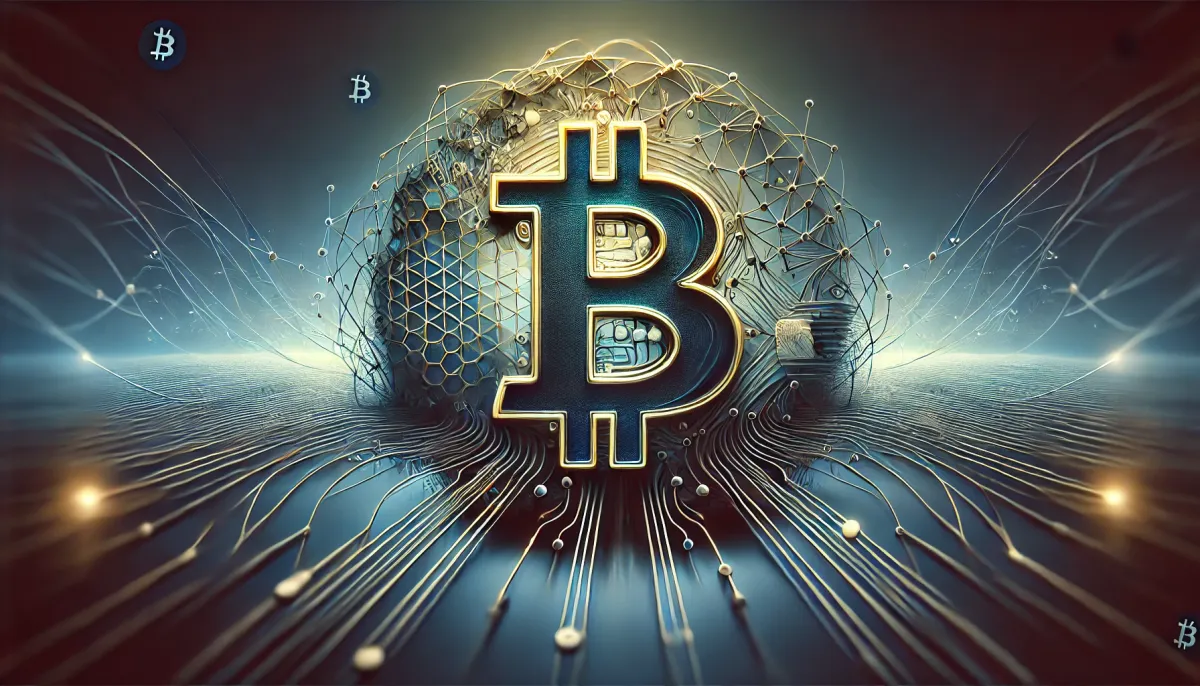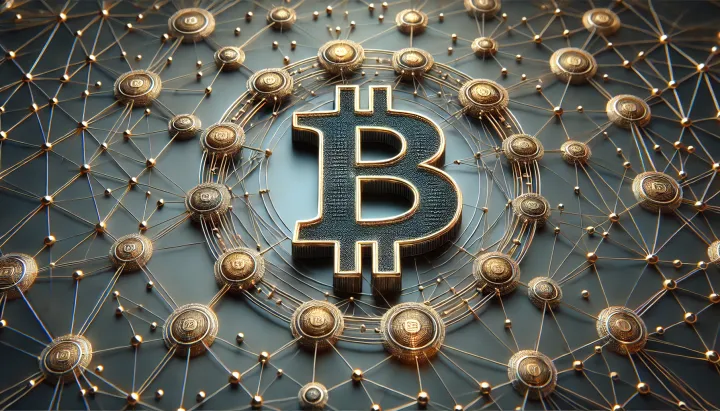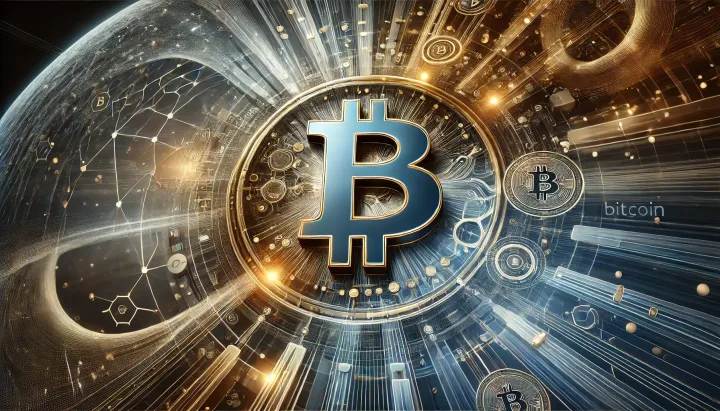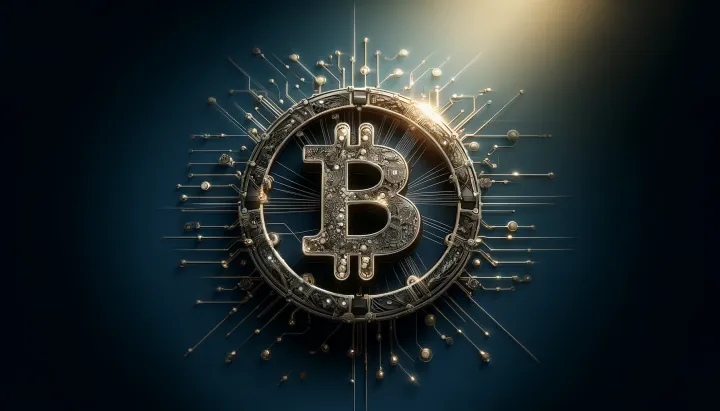Decentralizing Digital Communication: Insights from Keet and Holepunch
In the September 11, 2024 episode of the Bitcoin Infinity Show featured Paolo Ardoino and Mathias Buus Madsen exploring the significance of decentralization in new communication platforms Holepunch and Keet.

Briefing Notes
My 'briefing notes' summarize the content of podcast episodes; they do not reflect my own views. If you have comments about this briefing note, please leave a comment below (requires signing up for a free blog subscription). Note that some of the podcasts I summarize are likely sponsored episodes: don't trust, verify, if the information you are looking for is to be used for decision-making.
Summary
This briefing note explores key themes from a recent discussion with Paolo Ardoino and Mathias Buus Madsen, from the September 11, 2024 episode of The Bitcoin Infinity Show. They focus on the development of decentralized communication technologies like Keet and Holepunch. These platforms aim to enhance data sovereignty and resilience against centralized control, offering a glimpse into the future of internet communication. By addressing significant technical challenges, these projects represent a critical evolution towards privacy-centric and user-controlled digital environments.
Take-Home Messages
- Decentralization Enhances Security: Keet and Holepunch platforms eliminate central points of failure, significantly improving data privacy and security.
- Empowerment through Data Sovereignty: Users gain complete control over their data, making decentralized systems a powerful alternative to traditional centralized platforms.
- Technical Innovation is Crucial: Simplifying the complexities of decentralized networks is essential to achieve broader user adoption without sacrificing resilience.
- Navigating Regulatory Hurdles: As decentralized communication technologies grow, understanding and addressing regulatory challenges will be key to their success.
- Preparing for Future Crises: Decentralized communication systems must be robust and reliable, ready to serve as alternatives when centralized networks are compromised.
Overview
The discussion with Paolo Ardoino and Mathias Buus Madsen on The Bitcoin Infinity Show centered around the transformative potential of decentralized communication technologies, specifically through projects like Keet and Holepunch. Keet serves as a fully decentralized communication app, eliminating the need for centralized servers and giving users full control over their data. This approach provides enhanced security, privacy, and resilience compared to traditional centralized communication platforms.
Ardoino and Madsen underscored the importance of decentralization, particularly in a digital landscape where centralized control over data has led to increased risks of breaches and government overreach. They highlighted how their technology stack, developed under Holepunch, aims to empower users by offering truly peer-to-peer communication that resists centralization, making it robust against external pressures. They compare this new technology with the current, simpler option, Nostr.
The conversation also addressed the significant technical challenges involved in creating decentralized systems. These include ensuring seamless peer-to-peer connectivity and simplifying the user experience to match that of centralized alternatives. Despite these hurdles, the speakers remained optimistic about the potential of decentralized platforms to redefine internet communication, emphasizing that these technologies need to be ready and reliable before they are critically needed.
Looking ahead, Ardoino and Madsen discussed the broader implications of decentralized communication on global internet infrastructure. By reducing dependence on centralized data centers, decentralized networks could lead to more efficient, lower-cost communication options that prioritize user autonomy and security. They also highlighted the potential for integrating decentralized communication with financial systems, such as Tether, which could further enhance the utility and resilience of these platforms.
Stakeholder Perspectives
- Tech Developers: Face challenges in simplifying complex technical requirements to make decentralized systems more accessible, but are driven by the potential for significant innovation.
- Regulators: May view decentralized platforms with caution due to their unregulated nature, posing potential legal challenges that need to be navigated.
- End Users: Stand to gain from enhanced privacy and security but may struggle with the transition from familiar centralized platforms without adequate education and support.
- Investors: See growth potential in decentralized platforms, motivated by increasing demand for secure and privacy-focused communication alternatives.
Implications
The rise of decentralized communication platforms like Keet and Holepunch represents a significant shift in the digital landscape, promising more resilient, secure, and user-controlled alternatives to centralized systems. For policymakers, this evolution underscores the need for regulatory frameworks that support decentralization while safeguarding against misuse.
Industry stakeholders, including tech companies and financial institutions, may find opportunities in integrating decentralized communication with existing services, enhancing both security and user autonomy. For investors, decentralized platforms offer a compelling growth opportunity, driven by the increasing value placed on privacy and resilience in digital communication.
Societally, the adoption of decentralized communication technologies could empower communities by providing reliable and private communication channels, especially in environments where centralized control is a liability. By decentralizing communication, these platforms help to preserve freedom of expression and protect user data, aligning with broader global trends towards digital sovereignty and privacy.
Future Outlook
As decentralized communication technologies continue to mature, they are poised to play an increasingly important role in shaping the future of internet infrastructure. Keet and Holepunch exemplify the potential for these platforms to provide resilient alternatives to centralized communication systems, particularly in scenarios where traditional networks are compromised. However, achieving widespread adoption will require overcoming substantial technical, regulatory, and educational challenges.
To fully realize the potential of decentralized communication, continued innovation in peer-to-peer technologies will be crucial. This includes addressing scalability concerns and enhancing the user experience to rival that of established centralized platforms. As these systems evolve, their integration with decentralized finance and other emerging technologies could further expand their utility, positioning them as foundational components of a more decentralized digital ecosystem.
Information Gaps
- How can decentralized communication platforms effectively protect against data breaches and government overreach? This question addresses the fundamental strength of decentralized systems: their potential to secure communications against external threats. Understanding these protective measures is critical to guiding future development and informing policy on data privacy.
- What specific technical barriers must be overcome to make decentralized systems as user-friendly as centralized alternatives? Simplifying the technical aspects of decentralized platforms is crucial for mass adoption. By identifying and addressing these barriers, developers can enhance accessibility and user experience, making decentralization a viable option for a broader audience.
- What strategies can be employed to shift user behavior from centralized services to decentralized platforms? Encouraging users to transition from centralized to decentralized platforms is essential for the growth of these technologies. This question seeks to uncover effective strategies to influence user behavior, bridging the gap between current usage patterns and new decentralized options.
- What are the potential impacts of resilient decentralized networks on global communication standards? Assessing how decentralized networks could influence global communication practices is vital for stakeholders to anticipate changes and align their strategies accordingly. This question explores the broader implications of adopting resilient, decentralized communication models.
- How can decentralized networks handle a large influx of users without degradation of service? Scalability is a key challenge for decentralized platforms aiming for mass adoption. This question focuses on identifying solutions to ensure that decentralized networks can efficiently support growing user bases while maintaining high performance and reliability.
Broader Implications for Bitcoin
Enhancing Privacy and Security in Bitcoin Ecosystems
Decentralized communication platforms like Keet and Holepunch enhance privacy and security, mirroring Bitcoin’s ethos of user sovereignty and decentralization. By removing central points of failure, these platforms reduce risks of data breaches and surveillance, providing a secure alternative for Bitcoin users who value privacy in all aspects of their digital lives.
Empowering Financial Sovereignty Through Decentralization
In line with Bitcoin’s mission to empower individuals with financial sovereignty, decentralized communication platforms offer control over personal data and digital interactions. This synergy between Bitcoin and decentralized communication reinforces the broader narrative of user control and independence, appealing to the same principles that drive Bitcoin adoption.
Socioeconomic Benefits for Global Bitcoin Adoption
Decentralized communication can play a pivotal role in regions where centralized control limits financial freedom, aligning with Bitcoin’s impact in similar contexts. By providing reliable communication channels in politically or economically unstable environments, these platforms can support Bitcoin’s use as a tool for financial inclusion and resilience, particularly in developing nations.
Navigating Regulatory Challenges for Bitcoin and Decentralization
As with Bitcoin, the growth of decentralized communication technologies challenges traditional regulatory frameworks. Policymakers must adapt to these evolving technologies, which, like Bitcoin, prioritize privacy and user autonomy. The intersection of decentralized finance and communication presents unique regulatory considerations that will shape the future of both sectors.
Integration with Bitcoin and Decentralized Finance
The integration of decentralized communication with Bitcoin and other decentralized financial systems, such as Tether, could lead to innovative solutions that enhance both privacy and functionality. This creates opportunities for seamless interactions between financial and communication networks, reinforcing the ecosystem of decentralized technologies that Bitcoin represents.
Building Resilience for Bitcoin’s Future
Decentralized communication platforms offer critical resilience that aligns with Bitcoin’s design to withstand systemic failures. These platforms can serve as reliable communication alternatives during crises, much like Bitcoin serves as a resilient financial alternative. Preparing these technologies ensures they are robust and ready, supporting a decentralized future where Bitcoin and related technologies provide stability and autonomy.



Comments ()